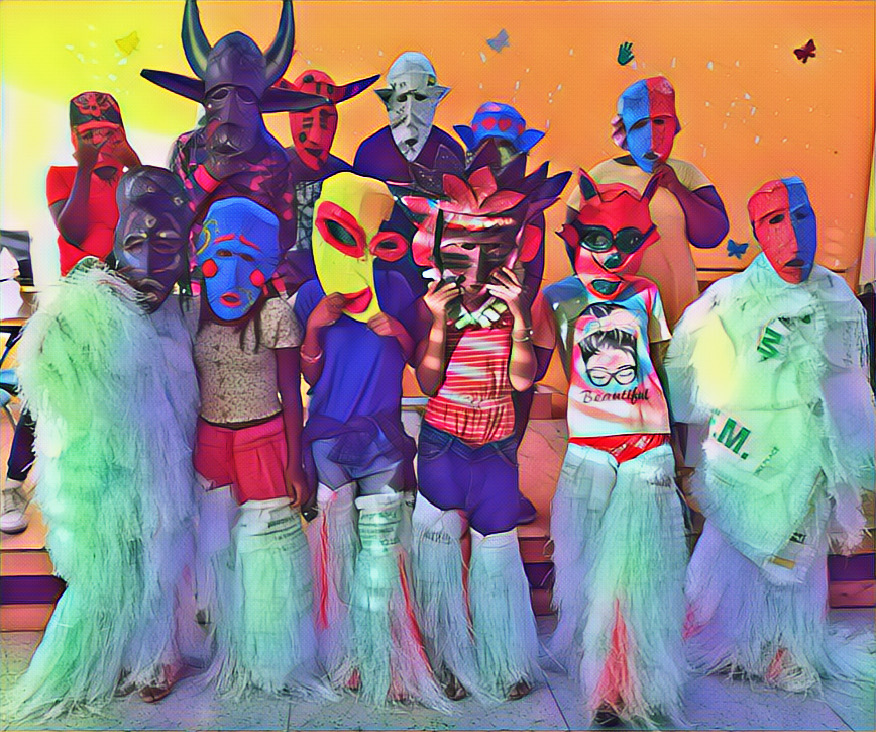Introduction
Carnival, a vibrant and exuberant celebration filled with music, dance, colorful costumes, and revelry, holds deep cultural significance for Afro-Caribbean communities. This lively festival, born from a rich tapestry of African traditions, colonial history, and the resilience of the African diaspora, is a testament to the enduring spirit of a people who have used it to preserve and express their heritage. In this blog, we will delve into the history of Carnival from an Afro-Caribbean perspective, with a particular focus on the fascinating contribution of stiltwalking to this cultural extravaganza.
The African Roots of Caribbean Carnival
Carnival's origins can be traced back to the complex history of the African diaspora, where enslaved Africans brought with them their diverse cultures, languages, and traditions to the Caribbean. These traditions became the backbone of what we now know as Carnival. Key components of African heritage, such as communal celebrations, music, dance, and vibrant costumes, were combined with influences from indigenous peoples and European colonizers. This fusion gave birth to a unique Caribbean identity that is celebrated with fervor during Carnival.
African Carnival Traditions
Many Afro-Caribbean Carnival traditions are rooted in African rituals and festivals. For example:
- Masquerade: The tradition of masquerading, where participants don elaborate costumes and masks, has strong African roots. This practice was used as a way to honor ancestors, appease spirits, and convey messages through symbolism and dance.
- Drumming and Music: The mesmerizing rhythms and music of Carnival draw inspiration from African drumming and percussion traditions. These musical elements are integral to the Carnival experience, infusing it with an irresistible energy.
- Dance: African dance forms, such as the "calinda" in Trinidad and "rara" in Haiti, played a pivotal role in shaping the dance styles that dominate Carnival today. These dances often feature high-energy, rhythmic movements.
Stiltwalking: A Unique Contribution to Caribbean Carnival
One of the most captivating and distinctive elements of Caribbean Carnival is stiltwalking. Stiltwalking has a long and storied history within Afro-Caribbean communities and has become an integral part of the celebration. This unique art form, known by various names like "moko jumbies" in Trinidad, "bwabwa" in Dominica, "moko zonbi" in Martinique and "les zévèl" in Haiti, holds a special place in the hearts of those who partake in the festivities.
1. Symbolism and Spirituality: Stiltwalking has deep spiritual and symbolic significance in Afro-Caribbean culture. Stiltwalkers are believed to be intermediaries between the earthly realm and the spiritual world. Their towering stature symbolizes a connection to the heavens and their ability to oversee the festivities.
2. Historical Roots: Stiltwalking has its roots in West African traditions, particularly among the Igbo and Yoruba peoples. The practice of using stilts to enhance one's height and visibility is linked to age-old African rituals and communal celebrations.
3. Captivating Performances: Stiltwalkers add a mesmerizing and surreal element to Carnival parades. Their graceful movements and towering presence captivate audiences and add an air of mystique to the festivities. Dressed in vibrant costumes, they stand out as iconic figures within the Carnival.
4. Preservation of Tradition: Stiltwalking represents the resilience of Afro-Caribbean culture. As these traditions were passed down through generations, they helped preserve and express the heritage of a people who endured immense hardships during the era of slavery and colonization.
The Future of Caribbean Carnival
As Carnival continues to evolve and adapt to modern times, it remains deeply rooted in its Afro-Caribbean heritage. The contributions of stiltwalking, along with other cultural elements, remind us of the festival's enduring significance in celebrating diversity, unity, and resilience.
In conclusion, Caribbean Carnival is a testament to the strength and vitality of Afro-Caribbean culture. The festival's deep African roots, rich traditions, and unique contributions like stiltwalking make it a captivating and vibrant celebration. As Carnival continues to thrive and expand, it serves as a testament to the enduring spirit of a people who have transformed their history into a celebration of life, love, and cultural pride.
